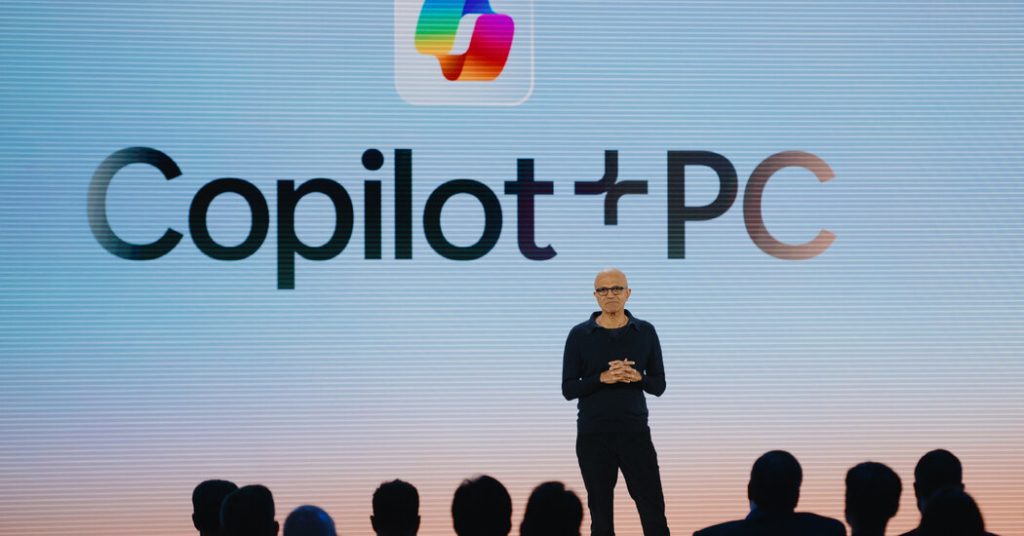Microsoft has introduced a new kind of laptop computer, the Copilot+ PC, designed specifically for artificial intelligence. These machines are equipped to run A.I. systems on chips and other gear within the computers to allow for faster, more personal, and more private experiences. The A.I. PC will streamline tasks like finding documents and files, automating photo editing, language translation, and more. This design will be integrated into Microsoft’s Surface laptops and other high-end products from major PC makers such as Acer, Asus, Dell, HP, Lenovo, and Samsung, potentially reversing the decline in the importance of personal computers over the past two decades.
The A.I. PC marks a shift in the industry as companies like Microsoft and Apple aim to make A.I. capabilities more accessible and integrated into laptops and other devices. Microsoft has been working to shrink A.I. systems called models, allowing for easier operation outside of data centers. Over 40 of these smaller models will run directly on the laptops, providing useful features for the average consumer. While the initial sales of these new computers may be small due to their higher prices, analysts expect A.I. tools to become ubiquitous by the end of the decade, providing customers with compelling reasons to upgrade to A.I.-enabled devices.
As the computer industry seeks a boost in sales amid consumer trends of less frequent upgrades, the integration of A.I. capabilities into laptops and other devices aims to provide a selling point for customers. Microsoft’s A.I. PC concept involves A.I. systems anticipating user needs and intents, creating a more personalized and efficient user experience. These advancements aim to address the challenges of lag time and high costs associated with cloud-based A.I. tools by running A.I. systems directly on personal computers. Apple is also expected to announce an A.I. integration strategy at its upcoming conference for software developers, aligning with the growing trend of incorporating A.I. capabilities in laptops and smartphones.
Microsoft showcased new laptops with features like a photographic memory through its Copilot chatbot to aid users in tasks like finding specific files using natural language queries. The company emphasized user privacy by storing information directly on the laptop for functions like Recall, live transcripts, and more, without sending data back to servers or using it for future A.I. system training. Advances in chip technology, particularly neural processing units specialized in handling complex A.I. tasks, have been incorporated into the A.I. PC to enhance capabilities in generating images, summarizing documents, and improving video editing and virtual background use. Consumers may benefit from the increased speed and efficiency provided by these neural processing chips for various tasks beyond A.I. functionalities.
Despite the progress in A.I. integration into laptops and devices, much of the data processing for A.I. still requires server-based operations rather than direct device processing, emphasizing the importance of a fast internet connection. Chipmakers like Qualcomm have developed dedicated chips to optimize A.I. functions on devices, but the benefits may not always be immediately noticeable to consumers. However, features like improved video editing and virtual background use may still entice consumers to opt for an A.I.-enabled computer. The push towards A.I. integration in laptops and smartphones signifies a broader trend in the tech industry towards personalized, efficient, and intelligent devices that anticipate and cater to user needs and intents.








